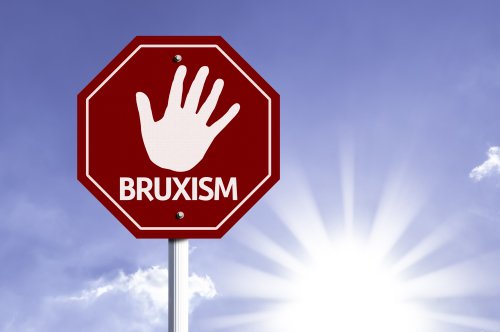Teeth Grinding and Braces

Patients suffering from teeth grinding or bruxism tend to grind their teeth while sleeping at night. There are many underlying causes of teeth grinding and it can be quite difficult to pinpoint the exact cause, especially if the patient does not present any mechanical tooth problem like misalignment or gaps in the teeth.
Stress, teeth erupting, psychiatric problems, medications and temporomandibular (jaw joint) disorders are common culprits. If stress is the cause, the patient will have to further identify the stressors that trigger teeth grinding and avoid them when possible.
How Teeth Grinding Affects You
Teeth grinding can be troublesome for both patients and their partners. Since it is audible, it can greatly disturb the person sleeping in the same room as the patient. Patients who grind their teeth often suffer from jaw aches and headaches during the day. Their jaws may make clicking sounds when they open their mouths to eat, laugh or talk. One of the biggest concerns is the amount of tooth damage grinding can cause. Frequent teeth grinding destroys the enamel on the tooth’s surface and in extreme cases leads to root exposure and increased tooth sensitivity.
Patients suffering from teeth grinding should visit their dentist to determine if the grinding is caused by mechanical tooth problems as these concerns can be fixed through braces, dental bridges or implants. Once the teeth are correctly aligned, patients might not feel the need to grind their teeth in their sleep any longer.
How Braces Prevent Teeth Grinding
Orthodontics like braces and retainers hold the teeth in place, offering a better bite and smile. They straighten the teeth and prevent grinding in some patients. There are several types of braces available today, from the most discreet, natural looking ones to the more durable metallic ones. Once your teeth are brought into correct alignment, you will have to use retainers, so that they don’t gradually return to their former position. Infrequent use of retainers will not keep the teeth straight, so the problem of teeth grinding will return if the teeth shift back to their uneven state.
Oftentimes, the grinding becomes more severe in the first few weeks after braces have been fitted. This is because your mouth has to adjust to the new brace. As the teeth become aligned, the grinding will decrease and ultimately become a thing of the past.
Treating the Causes of Bruxism
It’s easier to tackle teeth grinding if the true cause is known. In certain cases, patients suffering from teeth grinding can’t identify the real cause and this greatly impacts their quality of life. Antidepressant medications, Parkinson’s disease and Huntington’s disease are also responsible for teeth grinding in a certain few people. Patients suffering from this condition are often prescribed muscle relaxants to ease jaw pain.
If stress is the cause, patients are asked to pursue stress relieving activities and avoid caffeinated products that disrupt normal sleep patterns. They also have to use mouthguards to protect their teeth and reduce the sound associated with teeth grinding. Mouth guards are custom-designed orthodontic appliances that protect the teeth in the upper and lower jaw from damage caused by unconscious teeth grinding. These guards are made of acrylic and they cushion the teeth, protecting them from enamel erosion.
If you have trouble sleeping at night due to teeth grinding, speak to our friendly practitioners at Tony Weir Orthodontics to find a suitable treatment plan. We offer you high-quality orthodontics to improve your quality of life.
Reach us online to book an appointment or give us a call on 07 3278 1492. We operate from two locations in Brisbane for your greater convenience.